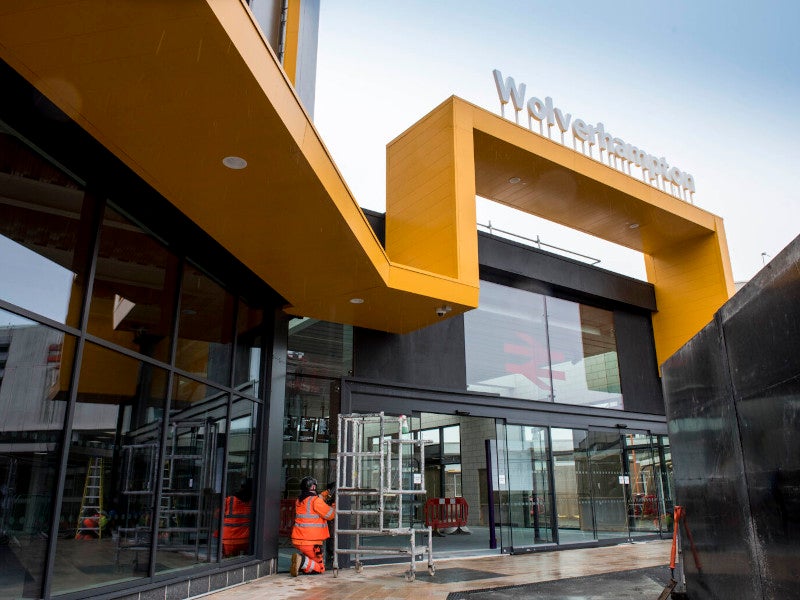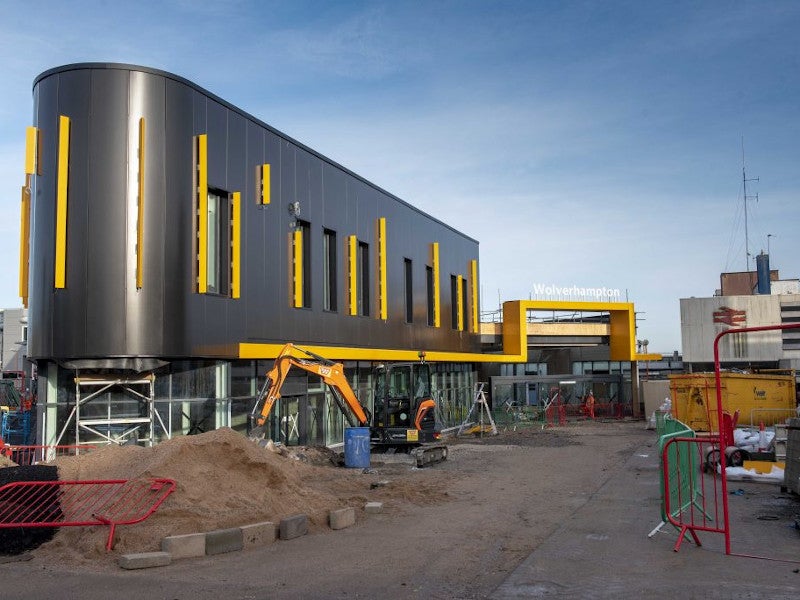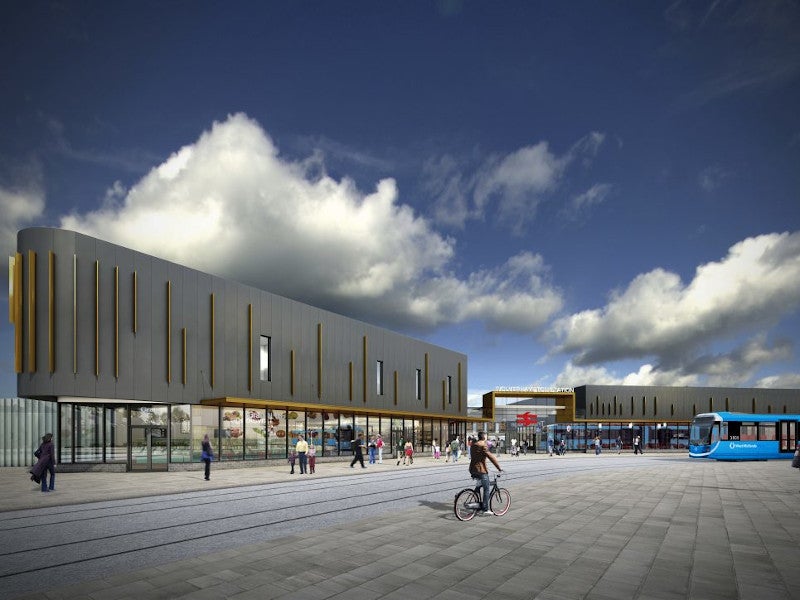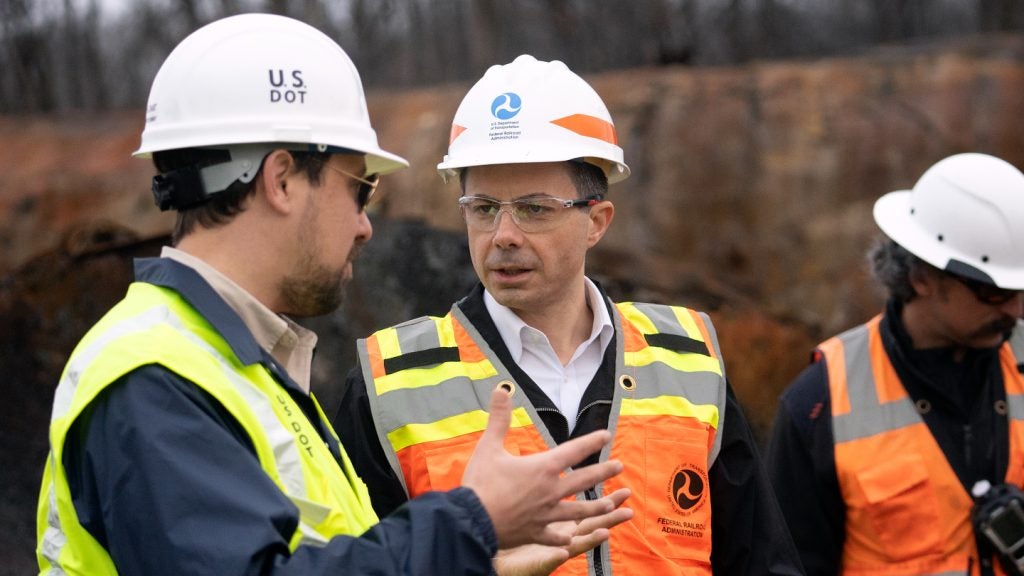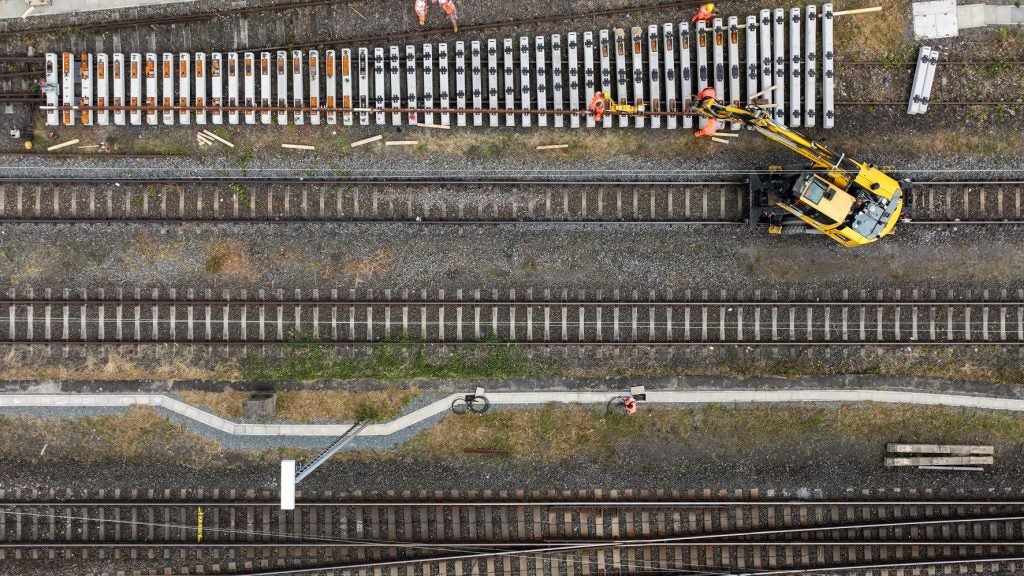The existing Wolverhampton railway station located in Wolverhampton, West Midlands, UK, is being redeveloped in two phases.
The project is part of the £150m ($186.79m) Wolverhampton interchange project, which will interconnect bus, tram and train services. The project is aimed at enhancing the city’s public transport infrastructure along with developing new office, retail, and leisure area on the Gateway to Wolverhampton.
The redevelopment project is being delivered by the Wolverhampton Interchange Partnership, which comprises of the City of Wolverhampton Council, ION Development, WMCA Combined Authority, West McCain Railway, Avanti West Coast, Network Rail, Midland Metro Coalition, Canal & River Trust and Black Country LEP.
Construction of the new railway station has been planned in two phases to minimise disruption to the Wolverhampton city’s rail services. The first phase of the redeveloped railway station opened to the public in May 2020, while the second phase is scheduled to open in early 2021.
Location details of Wolverhampton railway station
The new railway station is located in Wolverhampton in West Midlands, UK.
Wolverhampton is a major West Coast mainline station that serves more than 4.75 million passengers a year.
Wolverhampton interchange project
A key part of the Wolverhampton interchange project masterplan is the redevelopment of the Wolverhampton railway station. Completion of the new railway station will enable the Midland Metro Alliance to complete the final link of the West Midlands Metro extension to the station.
The redevelopment project will improve bus, train, and tram services while enhancing accessibility. It will serve as an important gateway to the city and contribute to the regeneration of the commercial district while improving the quality of commuter travel.
The full benefits of the new station, however, will not be felt immediately as people have been urged to follow the coronavirus guidelines issued by the government to not travel by train unless absolutely necessary.
The interchange project also includes the construction of a new bus station on Pipers Row and redevelopment of the Banana Yard and Steam Mill sites to create spaces for a wide range of uses, including business, leisure and hospitality.
Wolverhampton railway station redevelopment details
The redevelopment project includes the creation of a new entrance hall and ticketing area, larger passenger concourse, and new retail and cafe units. Further, increased ticket barriers will be added to improve passenger flow, which will provide the station with a revitalised emphasis.
Construction of the first phase of the project commenced in September 2018 with the demolition of the former British Transport Police building and a small portion of the existing station building adjacent to platform 1. The steel framework for this section of the railway station was completed in March 2019.
The first phase of the project included the creation of workspaces for British Transport Police, toilet, baby changing facilities and train crew accommodation. Further, accessibility facilities, six ticket vending machines and three ready-to-equip retail units were added.
The utilities such as communication networks, IT links, building management systems, lifts, lighting and CCTV systems were also installed during the phase.
Phase two of the project is currently underway and will include the demolition of the remaining station building. Construction of three additional retail units, a waiting room and assistance point for the passengers will be developed during this phase.
The new station will provide improved facilities for passengers and staff apart from enhancing pedestrian capacity within the building. It will also increase capacity in the forecourt area for taxis and short-stay parking.
Contractors involved
Galliford Try, one of the UK’s leading construction companies, is building the new railway station.

